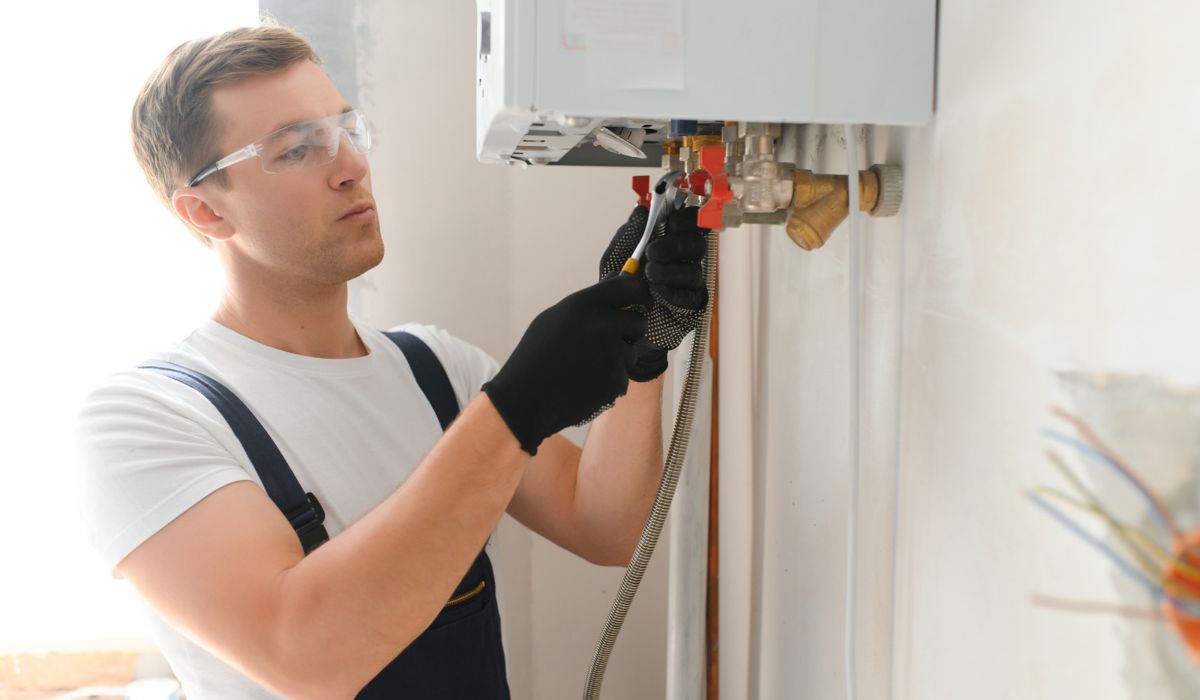The unsung heroes of home heating are boilers, which quietly operate in the background to maintain a comfortable and warm temperature in our homes. For maximum performance and energy efficiency, proper installation is crucial, regardless of whether you’re building a new home or replacing an outdated, inefficient boiler. In this article, we’ll discuss all you need to know about services like Boiler Installation in Edinburgh, including the many types of boilers available, the installation procedure, and the benefits of switching to a new boiler system.
Various Boiler Types
Before getting into the installation process, it’s vital to understand the many types of boilers available. The most prevalent varieties include:
Combination Boilers:
Combi boilers, which combine a central heating boiler and a water heater into a single small device, are well-liked for their on-demand hot water supply and space-saving layout. Smaller houses or buildings with constrained space are perfect for them.
System Boilers:
Designed for larger households with higher hot water demands, system boilers operate by using a separate hot water cylinder. They are renowned for their effectiveness and capacity to simultaneously supply hot water to several outlets.
Standard Boilers:
Conventional boilers, sometimes referred to as normal or traditional boilers, need a separate cold water storage tank and hot water cylinder. They may require more room, but they work well in homes with lots of bathrooms and hot water usage.
Boilers that condense:
Condensing boilers are made to recover and repurpose heat that would otherwise escape through the chimney in order to enhance energy efficiency. They’re incredibly efficient and can help cut energy expenses while reducing carbon emissions.
The Installation Process
Installing a boiler is a complicated procedure that should only be done by trained experts. An outline of what to anticipate from the installation procedure is provided below:
Evaluation:
The first step is to evaluate the heating requirements of your house and choose the right kind and capacity of boiler for your property. A licensed heating engineer will consider things like how big your house is, how many bathrooms it has, and how often you use the hot water in it.

Setting Up the Site:
Before installing the new boiler, the heating engineer will prepare the site by removing the old boiler, disconnecting utilities, and ensuring that the space is clean and clear of debris.
Setting Up:
The new boiler will be installed in accordance with local construction rules and manufacturer requirements once the site has been prepped. This could entail integrating the boiler with your current heating system as well as attaching controls, flues, and plumbing.
Commissioning and Testing:
The heating engineer will extensively test the boiler following installation to make sure it is operating safely and correctly. This could entail making necessary settings adjustments, looking for leaks, and confirming that every part is operating as intended.
Explanation and Transfer:
Following the installation and testing of the boiler, the heating engineer will show you how to use it and change its settings. They will also give you documentation, including warranty details, and explain any maintenance requirements. In case your boiler starts acting up you can take help from 24/7 Emergency Plumber Edinburgh service.
Benefits of Boiler Installation
Upgrading to a new boiler offers a range of benefits for homes, including:
Enhanced Effectiveness:
Newer boilers are significantly more energy-efficient than older models, which can lead to lower energy bills and reduced carbon emissions.
Enhanced Comfort:
A modern boiler can ensure more constant hot water and heating for you and your family, giving you and them more comfort and convenience.
Attenuation:
Older boilers are more likely to malfunction and break down, which may be expensive to fix and inconvenient. A new boiler is more reliable and less likely to experience issues.
Safety:
Advanced safety features are installed in new boilers to guard against leaks, carbon monoxide poisoning, and other dangers. Your loved ones and you can rest easy knowing this.
Increased Property Value:
Installing a new boiler can increase the value of your home and make it more attractive to potential buyers if you decide to sell in the future.
Boiler installation is a big investment in your home’s comfort, efficiency, and safety. By understanding the different types of boilers available, the installation process, and the benefits of upgrading to a new system, you can make informed decisions to ensure that your home heating needs are met for years to come.